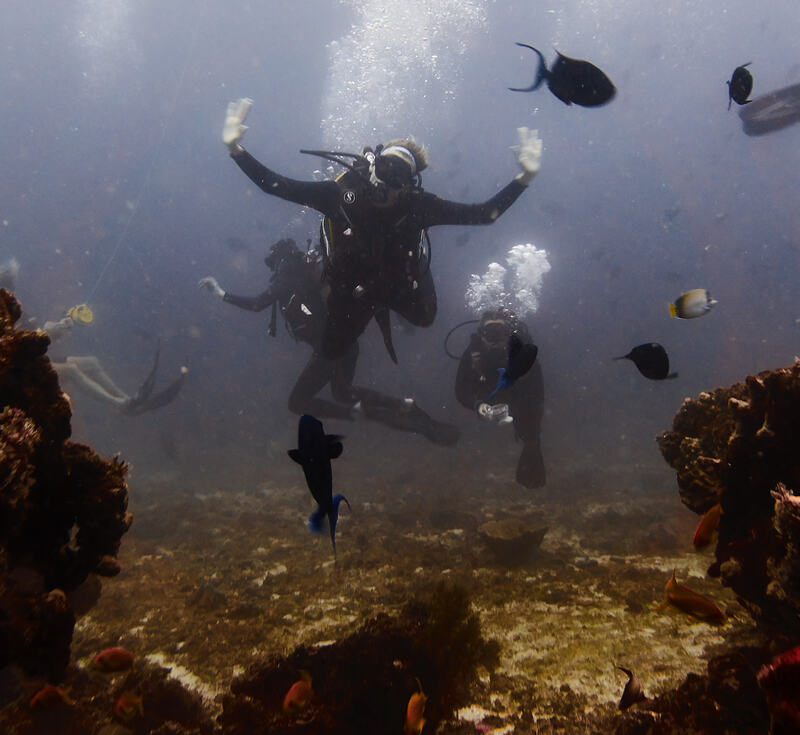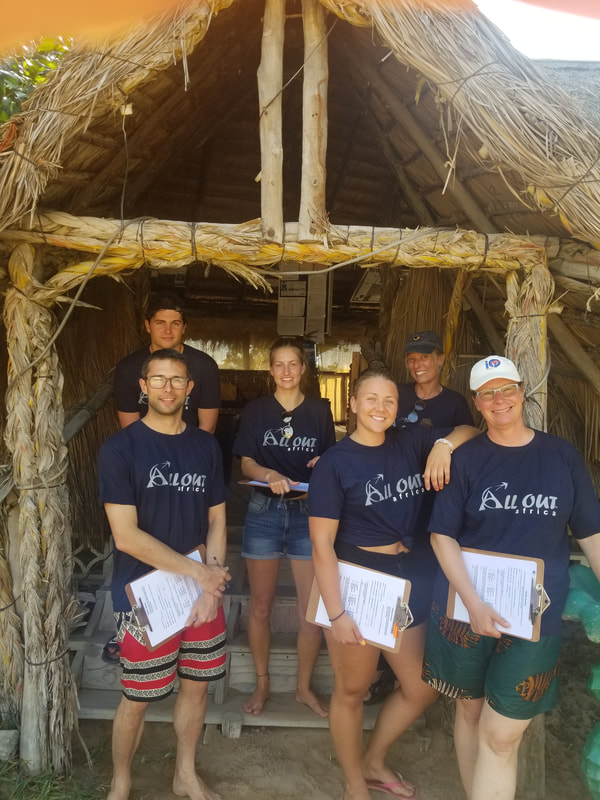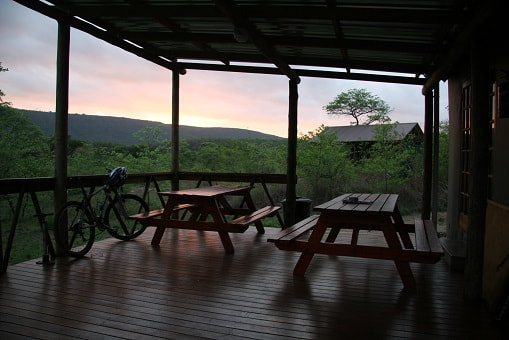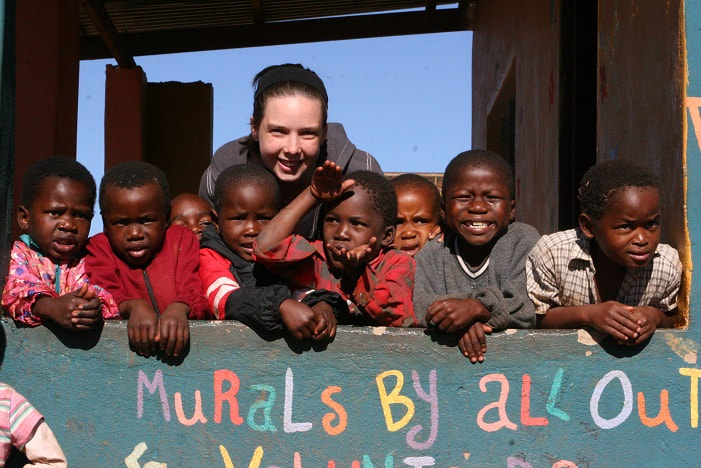frequently asked questions
travelWhat VISA do I need?
It depends on how long you're staying, but generally it'll be a 30 day single entry tourist VISA from the closest Mozambiqcan embassy to your home country. Check embassy websites for what documentation is required. What if I stay for more than 30 days? Then you will need to extend your 30-day VISA for another 30-days (no shorter timescale is available at the time of writing, and comes at an extra cost (refer to embassy website for latest prices)). You get this from Maxixe, a half-day trip that you'll take accompanied by an All Out Africa staff member. Do I need insurance? Yes. What does my insurance need to cover me for? DAN (Divers Alert Network) covers for your diving. From their website you can get temporary insurance just covering you for your trip. General health insurance is also recommended, in case of accident outside of diving, although read the small print of your DAN insurance - sone packages cover your whole trip. Additional insurance for your flights, luggage or specific equipment (camera, laptop etc) you can get at your own discretion. How do I get to Tofo? Check our FIND US page What time of year should I come? It depends what experience you're after. The summer (Nov-March) can be extremely hot, even so hot you can burn your feet on the sand. The summer over christmas and new year is the busiest time in Tofo by a mile, and can be overwhelming for some - it is party time. The whole rest of the year, outside of christmas and NY, Tofo is a calm and relaxing place. The coolest time of year (in both temperature and experiences!) is definitely winter (June - October). Winter is the humpback whale season, and although the water can be cold (down to 17/18degrees at depth, a neoprene hood is recommended), your ears will be filled with the singing of humpback whales. It is magical. health & safetyWhere is the closest Hospital?
In Inhambane, a 25 minute car journey. What kind of care is provided at the hospital? They have a doctor consult system, x-ray machine, casting equipment and other first-response care equipment. Doctors and nurses tend to only speak Portguese - an All Out Africa MRC staff member will accompany you to translate everything. There is also a pharmacy in the hospital and several around Inhambane and Tofo if you require antibiotics, pain relief or anti-malarial medication. Where is the closest de-compression chanber if there is a dive-related accident? The closest DAN-approved clinic is in Nelspruit, South Africa. The closest recompression chamber is in Durban, SA, accessible by helicopter (deployed from Durban, SA or Vilankulo, MZ) in emergencies. Should I take anti-malaria medication? Which? It is entirely up to you whether you would like to take anti-malarials - they are not compulsory. It really depends on how long you plan on staying, the shorter your trip the more we recommend taking the malarial medication. Do I need any other injections/medication for before or during my trip to Mozambique? No, unless you have a layover in a yellow fever country. Is it safe to travel after the COVID-19 outbreak? It entirely depends on the situation at the time. At the time of writing, airport protocol and international travel restrictions are still being negotiated and are changing all the time. Check with the airline you plan on flying with. Failing that, EMAIL us for the latest information about Mozambique. What is the current state of the COVID-19 pandemic in Mozambique? Either check WHO or Mozambican embassy sites for the current state of affairs - or email us. Do you ensure COVID-19 safety measures are in place? Check out COVID-19 safety practices page. What kind of measures do you take? Again, check out COVID-19 page for all the details. miscIs there wifi?
Yes, there is free wifi available in the All Out Africa MRC office. Can I get a sim card? Yes! Make sure your phone is unlocked and you can purchase your own sim card, upload credit and data. Where to get it and how much to spend will be explained to you on arrival. Can I drink the tap water? It is entirely up to you. There are two water sources in Tofo - FIPAG (supplied by government) and from boreholes. It depends on your accomodation as to which one you have - borehole water tends to be clearer in colour as it doesn't go through as many pipes. There is clean filtered water available in the MRC office too. Is it mixed gender rooms in the volunteer house? It entirely depends on what the volunteer cohort consists of in your particular month and what you book! You can request single-sex rooms, private rooms or even your own private house if you prefer. Can I get a private room? Yes! Just request it at the time of booking. Will a whale shark eat me? Whale sharks eat plankton, some of the smallest creatures in the ocean. You'll be fine! Will a stingray sting me? Stingrays actually would much rather swim away that sting a potential predator/threat. All our diving code of conduct, with every animal we encounter, includes keeping your distance to avoid disturbing them. So, you'll be fine! |
courses and packagesWhat happens with the data I collect?
Each research project goes to different causes and individuals for analysis and research. Seahorse ID contributes towards the iSeahorse project, dolphin acoustics, guitarfish and stingray sightings contribute towards PhD and Masters projects, reef fish abundance contributes towards our almost decade-long dataset to analyse the fluctuations in fish stock analysed in-house... and the list goes on. Can I get sent any materials beforehand? Absolutely! You will receive some materials upon bookings, but in the mean time, check out the COURSES page for downloadable PDFs. What do I need to pack? Check out this PACKING LIST for when you're preparing to come out to the MRC! Can I bring my own camera? Absolutely, we encourage it! GoPro or other underwater action cameras are great for recording both memories and behaviours of animals. Can I bring my own dive gear? Of course! We actually recommend buying your own dive mask and (if you intend on diving more regularly) a dive computer. A third item that's a great addition to your diving gear is an SMB (surface marker buoy). Take a look at MARES and SCUBAPRO websites for good quality gear. Is dive gear included in the courses? Yes. Every dive you do with us you can rent all the gear you need except swim wear (price included). What's included in the package? Check out our COURSES page to see what's included Do I need previous diving experience? Not at all! Simply let us know what diving experience you have (even if that's none at all) and diving qualifications can be included in your package. Please note, however, if you have zero diving qualifications you will be required to book for a minimum of a 3 week trip. Can I accredit this to a university course? Certainly! Please email JEN and let her know what requirements must be met to contribute towards your course. She can let you know whether this will be possible. Can I get a certificate of completion? Absolutely. We don't issue them as standard, so please just be sure to request one at the end of your trip. around tofoWhat is the local currency?
Meticais (AKA mets, MZN, mts) How much is a beer? Between 80-130 mets What is the local beer? 2M (pronounced 'dosh-em') and Manica are the most popular How much for a typical dinner out? Between 300-1300 mets What is the local food? Matapa and feijoada are the most popular Are there supermarkets? What are they like? Yes! We are spoilt with 1 small supermarket in Tofo, another 5km out on the main road (petrol station) and two large supermarkets supplied with more-or-less most things you'd expect a normal supermarket to be stocked with. Are female hygiene products available? Yes, in all of the above mentioned outlets. Is it safe to walk around alone? Tofo is an incredibly small, safe community with lots of very friendly people. However, just like everywhere in the world, we always recommend for you to stay 'street smart' and just walk in pairs, especially at night. Is it safe to swim in the sea? Yes. Tofo bay tends to be nice a protected and has a maximum 2.5m tide. There are lifeguards on the beach (an initiative the MRC are very involved with) and the only riptide can sometimes pull you along the beach slightly, hardly ever is there an outward rip. What else is there to do in Tofo? Check out the COURSES page, but we have many friends in Tofo that provide many exciting activities, such as horseriding on the beach, kite surf rental and lessons, surfing and surf lessons, quad bike rental... all of this is also explained upon arrival. Will i visit local schools? Most likely, yes. Jonas runs our education program in 3 local secondary schools. Each school needs to be visited each week, so it is extremely likely you will be going unless you come in a month/weeks that there is school holidays. If this is the case, we will often run extra-curricular activities for the kids - some even on weekends, which we don't require you to join, but the help is definitely welcomed! How can I help the local community? Fee free to bring pencils, notebooks, art supplies and anything else (as little plastic as possible) with you to take to the schools. Also think about what kind of lessons can be provided incorporating your equipment, which we can fit in to our pre-existing marine conservation/english curriculum, to ensure it's used properly in the schools. Where is the nearest ATM? Just 5km out of the one road running in to Tofo is the petrol station. There are 2 ATMs there. There is another on the Barra turnoff, and several banks located in Inhambane city (25 minutes by car). |
still not found your answer?
check our pages:
if they still don't answer your questions, get in to contact with us and we'll get back to you Asap.
click here.
other facilities
savannah research centre
|
Situated on the banks of the Mbuluzi river in Mbuluzi Game Reserve the Savannah Research Centre caters for researchers and students who seek to conduct field research in the Lubombo Conservancy of NE Eswatini.
|
neighborhood care points
|
Located within rural and peri-urban communities in Eswatini there are eight NCPs supported by All Out Africa working in partnership with the respective communities. These NCPs cater for orphaned and vulnerable pre-school aged children providing them with day care, two nutritious meals and early developmental education.
|







